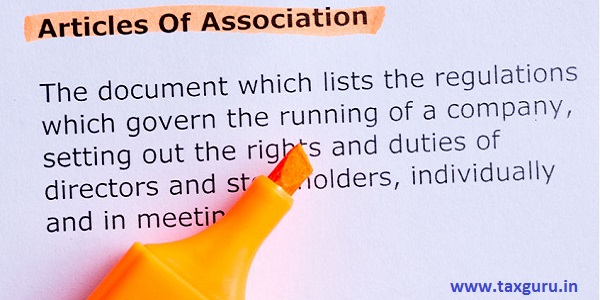1. Meaning of the Entrenchment: –
The Companies Act, 2013 not defined the Entrenchment term but it introduced in it. The Companies Act, 1956 not contain the Entrenchment in it. In the Companies Act, 1956 there was nothing specific provision like entrenchment, the act mostly depends on the judicial decisions.
As the term is not defined in the Companies Act, 2013 so we will take the definition of “Entrenchment” word from the Oxford Dictionary. Entrenchment means “the fact of something being strongly established”. In the legal sense, it means the addition of the provision which makes amendments either more difficult or almost impossible.

2. The Companies Act, 2013 and Entrenchment: –
Articles of Association of the Company is a document that provides regulation or bye-laws to manage the company’s internal matters. As per Section 5(3) of the Companies Act, 2013, “The articles may contain provisions for entrenchment to the effect that specified provisions of the articles may be altered only if conditions or procedures as that are more restrictive than those applicable in the case of a special resolution are met or complied with.”
3. Ways to do the Entrenchment: –
As per Section 5(4) of the Companies Act, 2013 the entrenchment only possible to do at the time of incorporation of the Company or by an amendment in the articles.
At the time of doing the entrenchment of articles in case of a private company, all the members of such private companies need to be agreed on it, and in case of public company special resolution is sufficient to create it.
4. Forms filed for Articles Entrenchment: –
At the time of incorporation, the Form SPICe + have a tab for articles entrenchment. In the case of an existing company, the form MGT 14 needs to be filed with Registrar within 30 days of passing the resolution.
5. The Entrenchment Legal Validity: –
The entrenchment clause should be in conformity with the Companies Act, 2013, and with the MOA of the Company. Any Article which overrides the Act or MOA is void and not enforceable.
E.g. – mentioned the clause for which reduces the resident director stay in India (i.e. only 120 days) during the financial year. This clause will have the overriding effect on Act and hence is void and not enforceable.
6. Example of Articles Entrenchment: –
Before Entrenchment – Google Ventures have a 10% stake in XYZ Private Limited. XYZ Private Limited can pass a special resolution without consent of Google Ventures (e.g. Bank Loan u/s 180, selling any undertaking, etc.)
After Entrenchment – Before giving the loan to the Company the Banks and Financial Institution will read the MOA and AOA of the Company and if the entrenchment was there for taking the approval of Google Ventures then Banks will ask for that approval also. So it creates a safeguard to Google Ventures.
7. Who can do Entrenchment:
Any Company can do entrenchment. The following are the types of companies or parties to whom entrenchment is suited for their safeguard.
1. Joint Venture Company;
2. Companies in which private equity investment or angel investment or any venture capitalist invested;
3. Start-ups;
8. Conclusion: –
For the point of Management, the entrenchment provisions are strict but on the second view, it creates a safeguard for minority shareholders.
(Kalpesh C. Veer is working in Optimus Advisory Services Private Limited and can be reached at [email protected])





Hi,
Thanks for the Article. I need to understand that mentioning rights of shareholders as per SHA including reserve matters make AOA entrenched? As in my company, AOA is having such provisions even before Companies Act, 2013 came into effect but we have never mentioned in ROC that Article is entrenched even though there are restrictions on the Company to take certain decision without institutional investors affirmative consents.